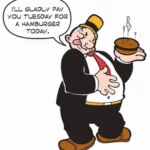The Virginia State Corporation Commission has approved Dominion Energy Virginia’s request to stretch out the back payments on $1.3 billion in old fuel bills from previous years over more than seven years. While the ultimate dollar cost to customers is millions higher because of interest charges, even the SCC news release touted the move as “rate relief.”
The final decision was issued mid-afternoon on November 3, just a few days before the November 7 elections will choose all 140 General Assembly members. Dominion will claim the idea to spread out the payments came from the legislature, but the 2023 bill that made it possible was written by the utility and put forward by friendly legislators.
Dominion has a stable of friendly legislators in Virginia, well rewarded for their efforts. It has never rewarded them better than in this most recent election cycle. Some of the same friendly legislators filed remarks in this case supportive of this financing scheme.
From the SCC news release:
Dominion estimated that, as approved, customers would pay approximately $3.10 per month over 7.25 years rather than up to $14.72 per month under the traditional methodology. Final terms will not be known until the bonds are marketed and priced and are subject to change.
The release failed to calculate a total cost over time for the two approaches. The larger amount over the shorter period added up to hundreds of millions less being paid by ratepayers.
What is going on has been previously reported. On an accounting basis, given the time value of money, it can be argued that spreading out the payments with interest doesn’t cause financial harm and might even be of benefit to consumers. It all depends on what interest rate the underlying bonds end up paying (to be determined) compared to ongoing inflation in the general economy (also to be determined.)
Stretching payments out by seven years (31 months, actually) does mean that at least some new customers will be paying for fuel consumed before they became customers, while others will leave and escape the cost. Oh, well, it comes out in the wash.
The legislators, clearly concerned about voter anger if the full cost of the fuel bill had come crashing down last summer, were joined in supporting the move by large industrial customers of Dominion. A vigorous debate over the idea did develop in the case record and during a hearing in September, with alternatives offered and some calling for ratepayers to just pay up over a year or so.
But the chance that the SCC would buck Dominion, the legislators and the large industrials was not helped when the Office of Attorney General Jason Miyares (R) took a neutral stance. From the transcript: “…But, so, again, as a policy matter, the Attorney General’s office does not oppose securitization as a way to mitigate further near-term bill increases coming from fuel costs.”
With the elected state official charged by law with representing consumers saying this was acceptable, the case really ended at that moment. An SCC hearing officer issued a report supportive of Dominion’s request in late September, setting the groundwork for today’s final decision.
The process to issue the bonds will take time, add additional carrying charges while Dominion carries the debt on its books in the meantime, and add cost for administration and legal fees over the payoff process. All from your pockets. Individually, the amounts won’t be huge. The benefit to the company and its stockholders, and now its bondholders, will be significant.
Get your hands on one of the bonds and at least you are hedged. A good follow up will be to see who gets them. Even more money will be earned as people trade them.


Leave a Reply
You must be logged in to post a comment.